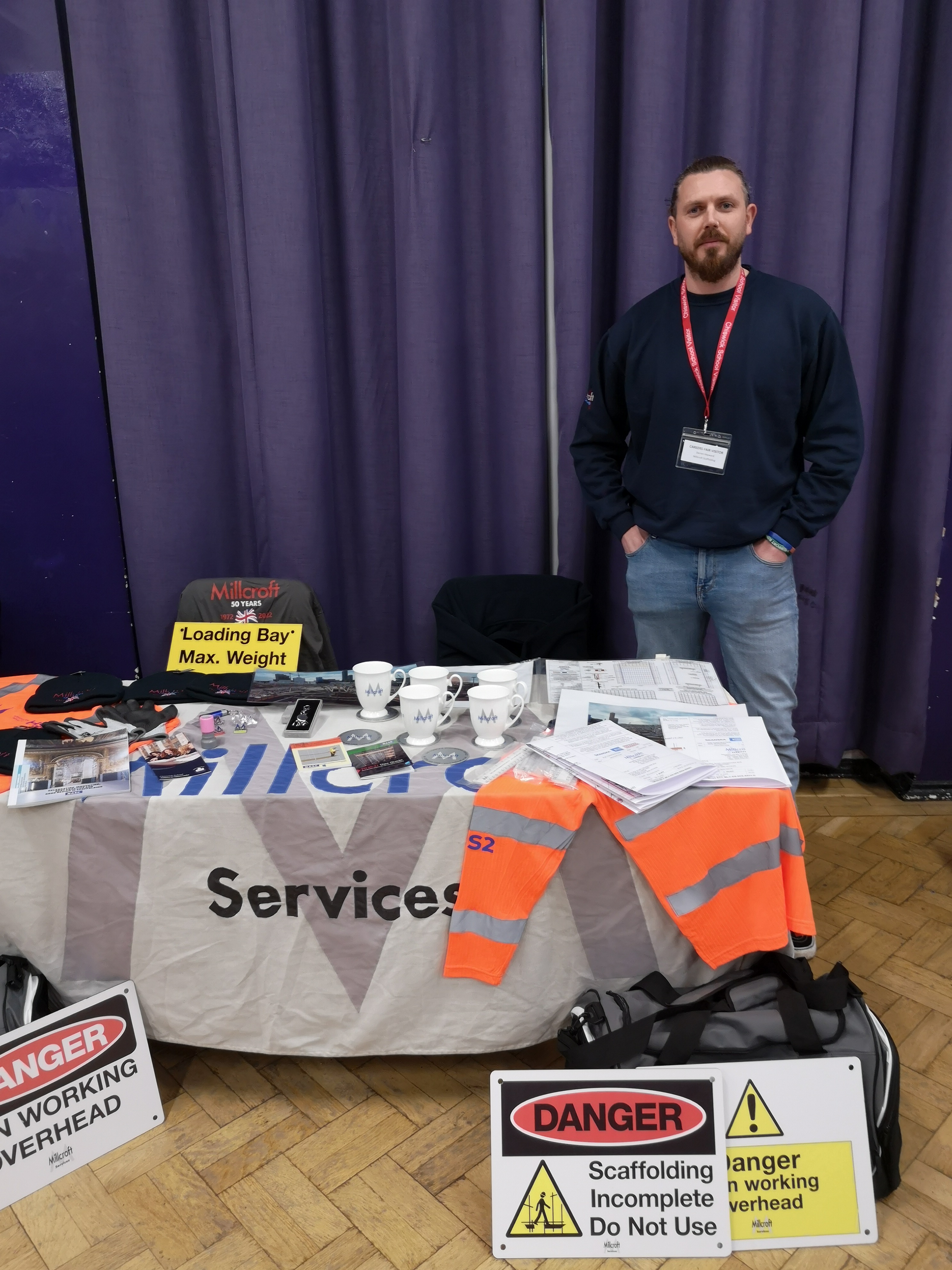The skills shortage in our sector is not a new problem, but it is one we believe can be addressed more efficiently. A quarter of a million extra construction workers may be needed by 2026 to meet demand output, according to the Construction Industry Training Board (CITB) – and scaffolding doesn’t escape this requirement.
Our Commitment to Skills
We believe Corporate Social Responsibility (CSR) is really important to harness as a business, and it is something we are committed to, particularly as our HS2 portfolio continues to grow. The integration of social and environmental concerns within our operations helps to attract and retain employees and also improves community relations in and around our home of Greenwich and beyond; leading to more collaboration and better support within our networks.
The CSR initiatives we at Millcroft are involved in also improve communications between key stakeholders, clients, staff and local education links. They help to mitigate risks relating to programme management and supply chain disruptions, and negative publicity, especially around the hot topic of HS2.
Skills, Employment and Education (SSE)
At Millcroft, we are showcasing our commitment to skills and training with our ongoing CSR work. Senior members of the team are engaging with local education providers and the community to educate and inform the workforce of tomorrow about the diverse roles offered within the scaffolding sector. Millcroft’s management personnel are attending job fayres and visiting local schools to showcase the benefits of working in the industry, and as a local employer, the potential opportunities to join the team.
One of our business targets, captured in our HS2 Skanska, Costain, Strabag (SCS) agreement, is to contribute 20 hours towards community engagement and social value. As part of this commitment, our target is to also employ four apprentices – whether as scaffolding trainees or within other departments. We will also seek to employ and retain an individual for a minimum of 26 weeks who is homeless, an ex-offender, a survivor of modern slavery, or a graduate.
We are also working towards providing a 20-day work placement to someone who is unemployed and employ five people who have been out of work for longer than two weeks, as well as supporting our own staff to continue working towards professional attainments.
Nurturing Our Own
As many will testify in our industry, it can be extremely difficult to find good staff. So, to combat this, as part of our CSR work, we really look after our own. We help nurture and grow their skills and provide career progression opportunities to ensure we maintain a solid and motivated workforce. We have a very low staff turnover because we invest in our people, which complements our own service and delivery to customers.
Developing people’s skills is an important part of our craft - especially as we’re experiencing an industry-wide quality labour shortage. We have a CITB-approved training centre on site, which is a huge asset and where we host all manner of courses including Emergency First Aid training, fire safety, our bespoke Mental Health Training and formal accreditations including the CISRS Operative Training Scheme (COTS), Site Manager Safety Training Scheme and Site Supervisor Safety Training Scheme. We’re happy to say we receive lots of positive feedback from those who have undertaken courses there – clients as well as our own staff.
Bringing Skills In
We believe there are no limits in scaffolding, and the opportunities don’t stop ‘on the tools’. Whether you’re a scaffold labourer, contracts manager, accountant or work in human resources (HR) – the opportunities are plentiful.
Breaking free from the stigma of only shift work being available, individuals can earn a good or even lucrative living from scaffolding while exploring various roles. We believe it is part of our responsibility to enlighten people from different ages and backgrounds about the potential opportunities available in our industry. Job fayres and school engagement days are useful ways to spread the word.
By adopting environmentally friendly practices such as only purchasing sustainable timber boards and adapting our fleet to hybrid and electric vehicles, as well as supporting social causes that improve people’s lives, the intention of our CSR work is that we make a positive impact through our business operations.
Of course, some of our CSR targets are mandatory and ensure excellent client relationships on high-profile projects like HS2, but as a business, giving back to the community and doing our bit to ease environmental pressures is important to us. It is particularly rewarding to introduce young people to our industry and think that perhaps we are responsible for a career choice they hadn’t considered before.

